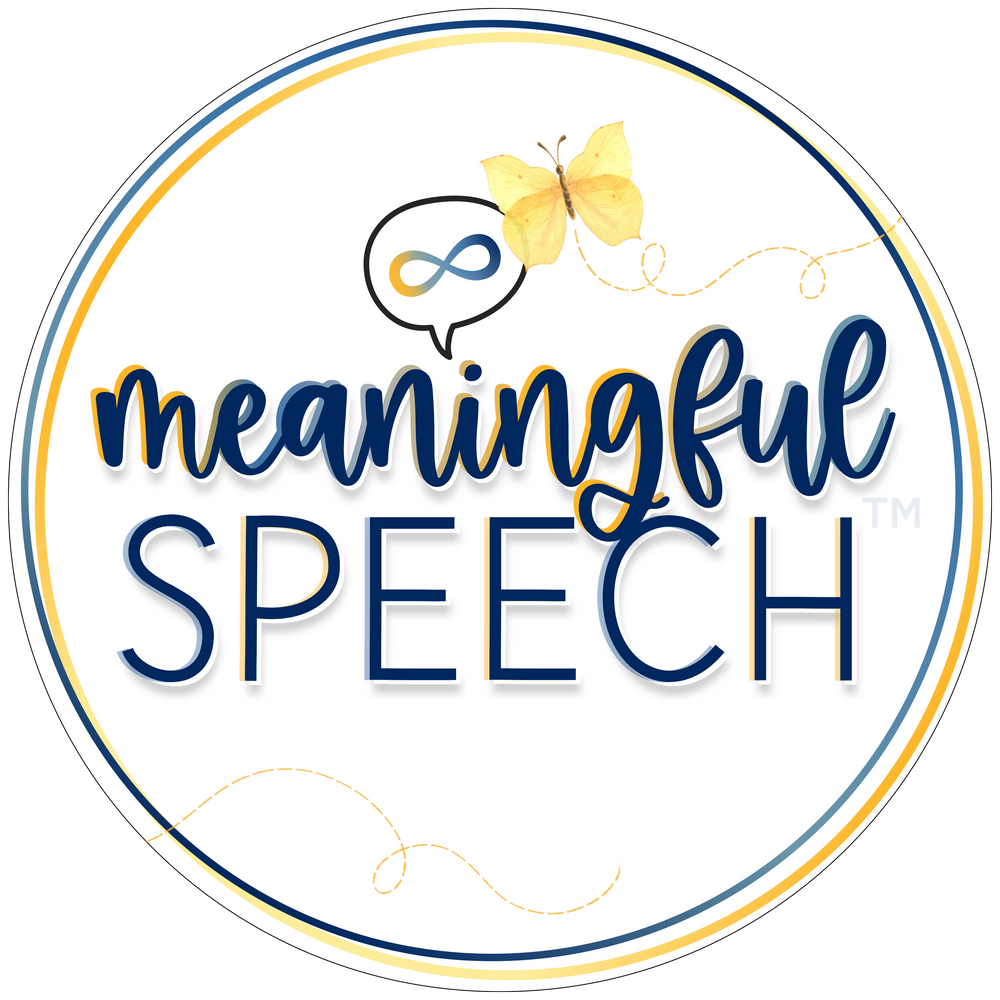Receptive Language and Gestalt Language Development
Apr 12, 2023
We’re often asked about receptive language measures and goals for gestalt language processors. Standardized tests and structured language tasks that aim to assess receptive language skills are not appropriate for early stage gestalt language processors for a variety of reasons.
Why aren’t standardized tests and structured language tasks for receptive language appropriate for early stage gestalt language processors?
Reason 1: Sensory and emotional regulation need to be taken into consideration when working with gestalt language processors. If a child is dysregulated, their true abilities will not be accurately shown on these measures.
Reason 2: Structured tasks that assess receptive language do not often take into consideration what will be intrinsically motivating to the child and do not allow for variation in how they are completed.
Reason 3: Gestalt language processors are asked a lot of questions that require a verbal answer for standardized receptive language tests. They may respond with a gestalt (script) that will be marked as incorrect by an evaluator that doesn't understand its meaning and hasn't done the "detective work".
Reason 4: Executive functioning skills such as working memory, shifting attention, self-monitoring, self-control, etc. are going to affect how a child performs on receptive language tests and receptive language goals.
Reason 5: Oftentimes, receptive language goals end up focusing more on compliance than comprehension. For example, following multi-step directions goals. A child might understand the directions, but they may not follow them due to a variety of factors. Some of which we've discussed already. Are they dysregulated? Do they need executive functioning supports? Do they trust, feel safe and connected to you? We need to look deeper.
Common goals we need to rethink for GLPs
Following directions:
- Not child-led/intrinsically motivating
- Motor planning challenges and/or regulation impacts outcome
- Events may become part of a gestalt for the child and they could have difficulty having variation within the gestalt (not difficulty with comprehension).
- Often focus more on compliance than comprehension
Responding to WH questions:
- Until Stage 4 (self-generated phrases/sentences), a child does not have the flexibility in their expressive language to respond in a manner that would represent their understanding of language.
Receptive vocabulary:
- Until Stage 3 (single words and two-word combinations), a gestalt language processor does not recognize single words as units of meaning.
- Stage 3 is often when a child begins to referentially point.
- In receptive vocabulary activities, the child is asked to point to an item when named.
- These labels provided during such activities can also become "stuck" single word gestalts.
Expressive and receptive language are deeply intertwined. It can be very difficult to isolate receptive language from expressive language because of this. Additionally, this means, when we are supporting children and highly engaging, child-led activities and supporting "expressive language development" we are also supporting "receptive language development" in the process.
So, what do we recommend?
We recommend presuming competence for all children, regardless of how they process language. We never truly know a child's full potential. For GLPs who are mainly in stages 1-3 of gestalt language development, we want to put our focus on supporting expressive language using the Natural Language Acquisition framework. Once a child is in Stages 4+, then we can start assessing and focusing on receptive language measures and goals. But even then, these measures are still not a full representation of a child's full abilities. If you do have to do standardized or structured language tasks depending on your setting or for qualification of services, this is important to keep in mind. It’s also important to let parents/caregivers know this too.
Want to learn more in-depth information about how to support gestalt language processors?
- There are many free podcasts, webinars and articles to get you started. A comprehensive list of resources can also be found on our website and Communication Development Center's website.
- Consider taking the Meaningful Speech course to learn more about how your child or client processes language, how you can help support them from echolalia to self-generated (original flexible) language, child-led therapy, and neurodiversity-affirming practices.
- Consider taking our new AAC + Gestalt Language Processing course. It will teach you how to identify, evaluate and support gestalt language processors who use AAC or who you think might benefit from AAC.
- Look for a speech-language pathologist (SLP) who "gets it" and can help you in supporting your child's language development. Check out our registry. for SLPs who understand gestalt language processing and child-led therapy.
